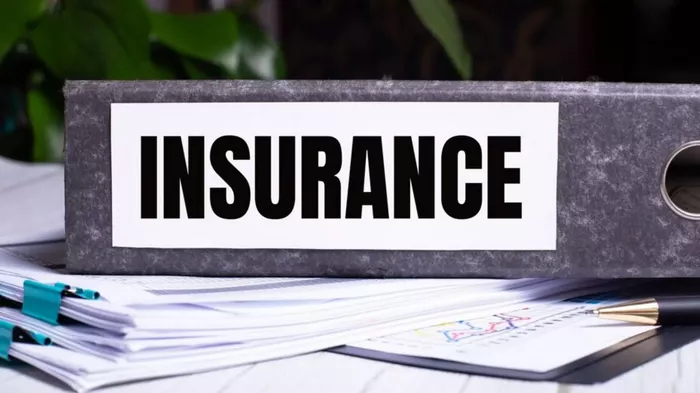When purchasing a vehicle with a rebuilt title, understanding the implications for insurance coverage is crucial. A rebuilt title indicates that a vehicle was previously deemed a total loss by an insurance company but has since been repaired and restored to a drivable condition. While owning a vehicle with a rebuilt title can offer savings, it also raises important questions about insurance costs, coverage options, and overall value. This article will explore these aspects in detail, providing essential information for current and prospective owners of rebuilt title vehicles.
Understanding Rebuilt Titles
What Is a Rebuilt Title?
A rebuilt title is a designation given to a vehicle that has been declared a total loss by an insurance company due to significant damage from an accident, theft, flood, or other events. After repairs are completed, the vehicle undergoes inspection to ensure it meets safety standards. If it passes, the title is changed from “salvage” to “rebuilt.”
Reasons for a Rebuilt Title
Vehicles can receive a rebuilt title for various reasons, including:
Accidents: Major collisions that cause extensive damage.
Theft Recovery: Vehicles recovered after being stolen.
Flood Damage: Vehicles that have been submerged in water but repaired.
While rebuilt vehicles can be a great way to save money, it’s essential to consider their potential risks and benefits.
Factors Affecting Insurance Rates on Rebuilt Title Vehicles
1. Value of the Vehicle
The overall value of a rebuilt title vehicle significantly influences insurance rates. Rebuilt vehicles typically have a lower market value compared to similar vehicles with clean titles. Insurance companies consider this value when determining premiums.
2. Insurance Type
The type of insurance coverage you choose will impact your overall costs:
Liability Insurance: Required by law, it covers damages to other people’s property and medical expenses in case of an accident. This is generally the least expensive option.
Comprehensive Coverage: Covers damages to your vehicle due to non-collision events such as theft, vandalism, or natural disasters. This option can be more expensive, especially for rebuilt titles.
Collision Coverage: Covers damages to your vehicle from a collision. Given the potential risk associated with rebuilt vehicles, premiums for collision coverage may be higher.
3. Repair Quality
The quality of repairs and the reputation of the repair shop can also affect insurance rates. If a vehicle has undergone poor-quality repairs, it may be considered a higher risk, resulting in increased premiums.
4. Driving History
Your personal driving history is a significant factor in determining your insurance rates. A clean driving record can lead to lower premiums, while a history of accidents or claims can increase your costs.
5. Location
Insurance rates can vary by location due to factors such as local laws, crime rates, and weather conditions. In areas prone to severe weather or high accident rates, insurance costs may be higher, even for rebuilt title vehicles.
How to Get Insurance for a Rebuilt Title Vehicle
1. Shop Around for Quotes
It’s essential to obtain quotes from multiple insurance companies to find the best rates. Each insurer has different underwriting criteria and may offer varying rates for rebuilt title vehicles.
2. Disclose All Information
When applying for insurance, disclose all relevant information about the vehicle, including its rebuilt status. Providing accurate information ensures that you receive an appropriate quote and avoids complications later on.
3. Consider Specialty Insurance Providers
Some insurance companies specialize in high-risk vehicles, including those with rebuilt titles. These companies may offer better coverage options or lower rates compared to standard insurers.
4. Understand Coverage Options
Review and compare the coverage options provided by different insurers. Some may offer specialized coverage for rebuilt title vehicles, while others may not cover them at all.
5. Evaluate Discounts
Inquire about available discounts that can lower your premiums. Many insurers offer discounts for safe driving records, multiple policies, and vehicle safety features.
Typical Insurance Costs for Rebuilt Title Vehicles
Average Costs
While insurance costs can vary widely based on several factors, the following averages can provide a general idea:
Liability Insurance: For a rebuilt title vehicle, liability insurance may range from $300 to $1,000 per year, depending on the state and individual driving history.
Full Coverage Insurance: This can be significantly more expensive. Annual premiums for comprehensive and collision coverage on a rebuilt title vehicle may range from $800 to $2,500 or more, depending on the vehicle’s value and coverage limits.
Examples of Insurance Costs
To provide a clearer picture, let’s look at some examples:
Example Vehicle: A rebuilt title sedan with a market value of $15,000.
- Liability Insurance: Approximately $600 per year.
- Full Coverage Insurance: Approximately $1,200 per year.
Example Vehicle: A rebuilt title SUV with a market value of $25,000.
- Liability Insurance: Approximately $800 per year.
- Full Coverage Insurance: Approximately $1,800 per year.
Factors Influencing These Costs
The above examples illustrate how the vehicle’s market value and type of coverage can impact insurance premiums. Generally, the higher the vehicle’s value and the more comprehensive the coverage, the higher the premiums.
The Process of Insuring a Rebuilt Title Vehicle
Step 1: Obtain an Inspection
Before insuring a rebuilt title vehicle, it’s often necessary to have it inspected by a certified mechanic. This inspection ensures that the vehicle meets safety standards and helps confirm its market value.
Step 2: Gather Necessary Documents
To apply for insurance, gather all relevant documents, including:
Rebuilt Title: Proof that the vehicle has been restored and is roadworthy.
Inspection Report: Documentation of any inspections conducted on the vehicle.
Purchase Agreement: Proof of purchase or valuation of the vehicle.
Step 3: Compare Insurance Quotes
Contact various insurance companies and provide them with the gathered documents. Request quotes based on your specific situation and vehicle details.
Step 4: Choose Coverage
After comparing quotes, select the coverage option that best meets your needs. Ensure you understand the terms, conditions, and limits of the chosen policy.
Step 5: Finalize the Policy
Once you choose a policy, review the details carefully before finalizing. Ensure that all information is accurate, and confirm the coverage limits, deductibles, and premium amounts.
Legal Considerations for Insuring Rebuilt Title Vehicles
1. State Regulations
Each state has different laws governing the insurance of rebuilt title vehicles. Familiarize yourself with the specific regulations in your state to ensure compliance and understand your rights as a policyholder.
2. Insurance Requirements
Most states require a minimum level of insurance coverage for vehicles, including those with rebuilt titles. Ensure that you meet these requirements to avoid legal penalties.
3. Potential Resale Issues
When reselling a vehicle with a rebuilt title, you may face challenges in finding buyers who are willing to accept the risks associated with such vehicles. It is essential to be transparent about the title status and provide all necessary documentation.
Conclusion
Insuring a rebuilt title vehicle requires careful consideration of various factors, including the vehicle’s value, type of coverage, and personal driving history. While insurance costs for rebuilt title vehicles can be higher than for those with clean titles, many options are available for obtaining coverage. By shopping around, comparing quotes, and understanding the intricacies of insurance policies, vehicle owners can find the right coverage for their needs.
It’s crucial to stay informed about local regulations and insurance requirements when dealing with rebuilt title vehicles. With the right knowledge and preparation, you can navigate the complexities of insuring a rebuilt title vehicle, ensuring you have the necessary protection while enjoying the benefits of your purchase.
Related topics:
- How Does Renters Insurance Work with Roommates?
- What is Personal Liability in Renters Insurance?
- How Does Rent Guarantee Insurance Work?



































